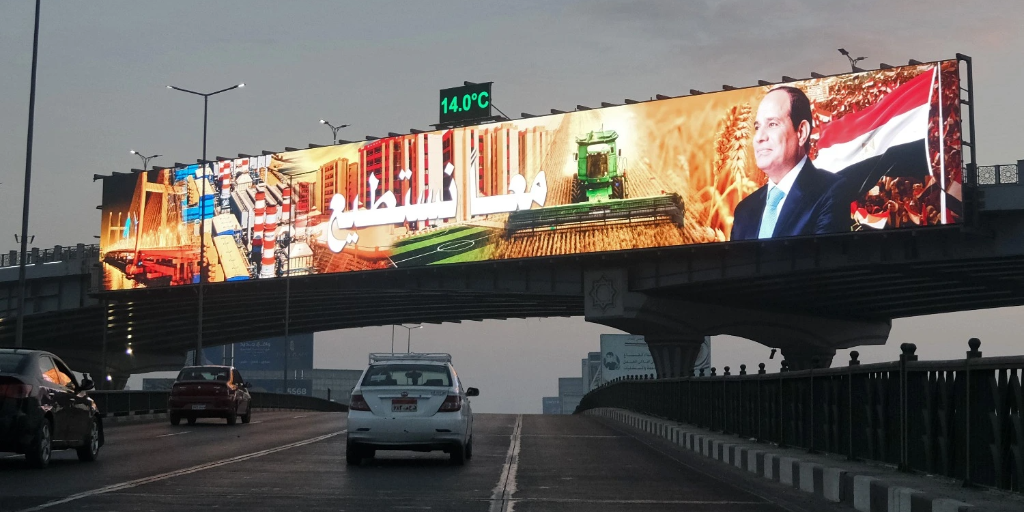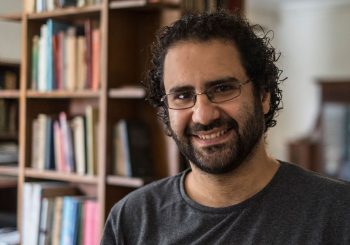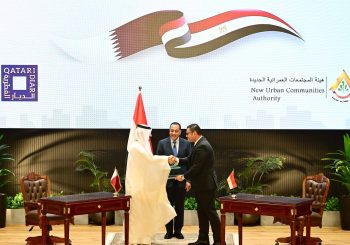A year ago, in July 2021, during the Egyptian government’s Haya Karima (Decent Life) campaign inauguration, President Abdel Fattah Al-Sisi announced the launch of the country’s latest nationwide project: the ‘New Republic’ strategy.
The strategy is a part of the Egypt 2030 Vision, which aims to place Egypt’s economy, innovation, education, and social justice through a ‘renaissance’ – all in a bid to create a path for achieving sustainable development goals.
“The New Republic is stable, and based on the principles of a modern democratic country, with comprehensive military, economic and social capacities. [The New Republic] gives priority to citizenship, acceptance of others in order to achieve peace, stability, and development,” Al-Sisi explained during the announcement, adding that he was looking forward to increased social justice and political development in the country.
“This will also develop Egyptians in the health, education and cultural sectors.”
While his time in office has seen increased investments in healthcare, and a new educational system, the strategy seems to extend beyond the mentioned sectors. At the surface level, it touches upon the development and growth of Egypt’s economy to better accommodate citizens’ needs.
At its core, however, it is about promoting human rights and democratic values, which in turn develops both the society and the economy, as explained by Egypt’s State Information Service in their ‘Egyptians Abroad’ periodical.
The New Republic comes in light of Egypt’s growingly public reputation for political imprisonments and strict sentences. Political activists such as Alaa Abd el-Fattah and Amal Fathy remain imprisoned despite the revival of Egypt’s Presidential Pardon Committee, an authoritative body instructed to research and present a list of prisoners qualified for a presidential pardon.
Mainstream focus on Egypt’s social justice track places the country in a sensitive situation, as it attempts to erase the ongoing reputation. Nevertheless, non-profit institutions, like Amnesty and Atmos, and certain international media outlets, such as The Guardian, continue to highlight concerns over Egypt’s human rights history. Particularly, in light of the upcoming COP27 in Sharm El-Sheikh.
Consequently, a new human rights strategy – part of the New Republic’s objectives – was inaugurated by Al-Sisi on 11 September 2021 as a means to revisit and reconsider the country’s human rights situation.
A detailed report by the Supreme Standing Committee for Human Rights further elaborated on the country’s effort to step up its human rights record. Chief among these efforts is the national dialogue initiative by the government, which hoped to bring in political opposition to debate the sociopolitical climate in the country.
In the time since its announcement, the New Republic has served as the base for Al-Sisi’s political Egypt of the future – a future that ushers in a new chapter in the country’s path towards human rights and democratic standards.
Former presidential candidate and political opposition, Hamdeen Sabahi, shared a different perspective on Egypt’s New Republic strategy. Sabahi, instead, believes in the potential of a national dialogue as a tool to enhance the country’s human rights standards.
“I believe that the call for dialogue [by Al-Sisi] requires the release of prisoners of conscience so that political dialogue can be feasible and that we can be confident in its feasibility,” Sabahi explains.
Other activists and critics, however, remain skeptical. Human rights researcher and former political detainee, Muhammed Kamal, referred to Egypt’s past human rights incidents, political climate, and ongoing imprisonments, as a constant obstacle on Egypt’s path to democracy. In a letter to his sister and fellow activist Mona Seif, imprisoned activist Alaa Abd el-Fattah expressed his belief that foreign states’ involvement in COP27 undermines the country’s current human rights climate.
Egypt is currently experiencing its most transformative period following the 2011 Revolution as citizens witness a gradual shift in technology, urbanization, and the economy. Egypt’s painting of its human rights standards – through the New Republic strategy – aims to be a part of the transformation.







Comment (1)
[…] the Sisi regime. Instead of actually tackling Egypt’s chronic problems, Sisi chose to build a “new republic” by relying on excessive borrowing and useless megaprojects. In order to finance his ambitious […]